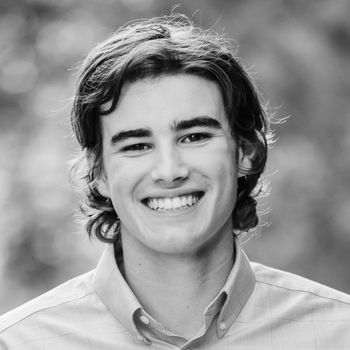National K-12 teacher shortage due to education colleges pushing 'radical philosophy', expert argues
Data show that American schools had at least 163,000 underqualified teachers and at least 36,000 vacant teaching positions, though these are only 'conservative estimates.'
'Colleges of education are captured by ‘critical pedagogy,' Fordham Institute Senior Fellow Daniel Buck told Campus Reform.
K-12 teacher shortages are a top concern for higher education leaders, according to a new report from the State Higher Education Executive Officers Association (SHEEO).
Approximately 95% of the SHEEO members surveyed indicated that K-12 shortages were an “important” or “very important” issue, tying first with economic and workforce development based on its importance to respondents.
Daniel Buck, a teacher and a senior visiting fellow at the Fordham Institute, told Campus Reform that the evidence of whether there is a teacher shortage is “murky,” though he is critical of current trends that could “push teachers out” of K-12 education.
“Colleges of education are captured by ‘critical pedagogy,’” he told Campus Reform. Buck defined “critical pedagogy” as “a radical philosophy of education that sees schools as centers for activism” and said that its effects include “politicized curriculum, increasing responsibilities on teachers, [and] behavioral mayhem.”
[RELATED: ANALYSIS: Woke teaching programs create K-12 ‘Social Justice Educators’]
The SHEEO report states, “The shortages, which were exacerbated by the pandemic, vary across districts, regions, states, and teacher specialties.”
The report continued to say that “the decline of students enrolling in traditional teacher education programs has alarmed the K-12 and higher education communities about the teacher pipeline in the years ahead.”
Data from an August 2022 Brown University report show that American schools had at least 163,000 underqualified teachers and at least 36,000 vacant teaching positions around the time of its publication. The report’s authors had only “conservative estimates,” using data that included news reports and information from the Department of Education.
Education experts have similarly warned about teaching’s activist approach in previous Campus Reform reports.
Adam Kissel of The Heritage Foundation told Campus Reform in September 2022 that “[e]ducation schools have adopted a social justice mission of transforming society instead of the traditional academic mission of preparing young people for the society they will actually enter.”
The University of California Los Angeles’ Teacher Education Program (TEP), for example, follows an “anti-racist and social justice agenda.”
[RELATED: New K-12 standards bear similarity to higher ed claims that math is racist]
TEP’s handbook describes how it incorporates this agenda into its residency programs and degree and credential pathways.
“Our approach to computer science is grounded in social justice and equity as we strive to disrupt dominant notions of neutrality in both STEM and CS fields,” the description of one residency program reads. “Instead, we engage in critical analysis of our world through a humanizing lens within the CS and STEM fields.”
Campus Reform contacted all relevant parties listed for comment and will update this article accordingly.
Follow Blake Boudreaux on Twitter.

